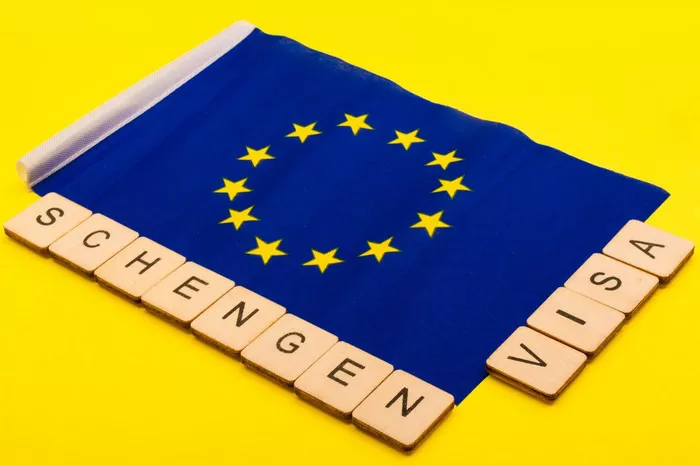The Schengen visa is a pivotal travel document for those wishing to explore Europe without internal border controls. For travelers seeking extended stays within the Schengen Area, understanding the longest Schengen visa options is crucial. This article delves into the intricacies of obtaining a long-term Schengen visa, the various types available, and the requirements involved.
Introduction to Schengen Visa
The Schengen Area comprises 26 European countries that have abolished passport and immigration controls at their mutual borders. This arrangement allows for seamless travel within the zone, making it an attractive destination for tourists, students, and business professionals alike. However, entry into the Schengen Area beyond the standard 90-day limit typically necessitates a specific type of visa: the long-stay Schengen visa.
Understanding Long-Stay Schengen Visa
A long-stay Schengen visa permits its holder to reside in the Schengen Area for an extended period, usually exceeding 90 days within a 180-day period. This visa is designed for individuals planning to study, work, or settle in one of the Schengen countries for an extended duration. It is crucial to differentiate between a long-stay visa and a short-stay visa, as each serves distinct purposes and entails different application processes and requirements.
Types of Long-Stay Schengen Visas
Student Visa: Tailored for students enrolled in educational institutions within the Schengen Area. This visa allows students to reside in the Schengen country for the duration of their studies.
Work Visa: Issued to individuals who have secured employment in a Schengen country. It permits them to work and reside in the host country for an extended period.
Family Reunification Visa: Granted to individuals joining family members who are already residing in a Schengen country. This includes spouses, children, and other dependents.
Entrepreneur Visa: Aimed at individuals intending to start a business or invest in a Schengen country. It requires proof of sufficient funds and a viable business plan.
Researcher Visa: Designed for researchers conducting scientific research or participating in research programs within the Schengen Area.
Application Process
Applying for a long-stay Schengen visa involves a comprehensive process that varies slightly depending on the visa type and the specific requirements of the Schengen country you intend to visit. Generally, the process includes:
Documentation: Gathering necessary documents such as a valid passport, proof of accommodation, travel itinerary, proof of financial means, and a completed visa application form.
Visa Application: Submitting the visa application either at the embassy or consulate of the destination Schengen country in your home country.
Interview (if required): Some Schengen countries may require applicants to attend an interview as part of the visa application process.
Biometric Data: Providing biometric data (fingerprints and photograph) at the time of application submission.
Processing Time: Waiting for the visa to be processed, which can vary from a few weeks to a few months depending on the country and visa type.
SEE ALSO: A COMPREHENSIVE GUIDE TO THE COSTS OF A SCHENGEN VISA
Requirements for Long-Stay Schengen Visa
Each type of long-stay Schengen visa has specific requirements that applicants must fulfill. While these requirements can vary slightly between Schengen countries and visa types, common requirements include:
Valid Passport: A passport with at least six months validity beyond the intended stay in the Schengen Area.
Financial Means: Evidence of sufficient financial means to cover living expenses throughout the stay. This may include bank statements, sponsorship letters, or proof of scholarship.
Health Insurance: Comprehensive health insurance coverage valid in all Schengen countries, with a minimum coverage amount.
Purpose of Stay: Documentation supporting the purpose of the stay (e.g., enrollment confirmation from an educational institution, employment contract, family relationship proof).
Clean Criminal Record: A certificate of good conduct or police clearance certificate from your country of residence.
Accommodation: Proof of accommodation arrangements in the Schengen country, such as a rental agreement or hotel reservation.
Duration and Renewal
The duration of a long-stay Schengen visa varies depending on the specific visa type and the regulations of the issuing country. Generally, long-stay visas are granted for periods ranging from three months to several years. Some visas may be issued initially for a shorter duration with the possibility of renewal or extension upon meeting certain conditions, such as continued employment or enrollment in a program.
Renewal or extension of a long-stay Schengen visa typically requires submitting a renewal application well in advance of the visa expiration date. Renewal applications may involve demonstrating continued compliance with visa requirements, such as maintaining valid health insurance, sufficient financial means, and fulfilling the purpose of stay.
Challenges and Considerations
Obtaining a long-stay Schengen visa can be a complex process requiring careful planning and adherence to specific requirements. Applicants may encounter challenges such as:
Document Authentication: Ensuring all documents are correctly translated and authenticated according to the requirements of the Schengen country.
Application Processing Time: Delays in visa processing times, which can impact travel plans and arrangements.
Language Barriers: Communicating effectively with embassy or consulate officials, especially if the official language differs from the applicant’s native language.
Financial Requirements: Providing evidence of sufficient financial means to cover living expenses without relying on public funds in the host country.
Conclusion
In conclusion, understanding the longest Schengen visa options is essential for individuals planning extended stays within the Schengen Area for purposes such as study, work, family reunification, entrepreneurship, or research. Each type of long-stay Schengen visa has specific requirements and conditions that applicants must meet to qualify. By familiarizing oneself with these visa types, understanding the application process, and preparing the necessary documentation, prospective travelers can navigate the complexities of obtaining a long-stay Schengen visa successfully. With proper planning and adherence to visa requirements, individuals can enjoy an extended stay in Europe, exploring its diverse cultures, landscapes, and opportunities.


